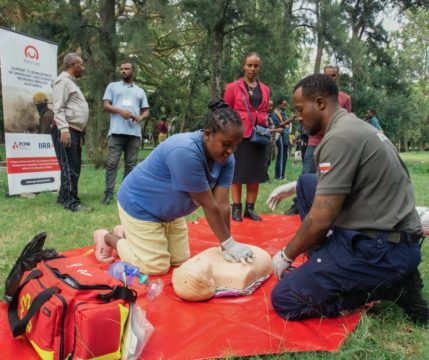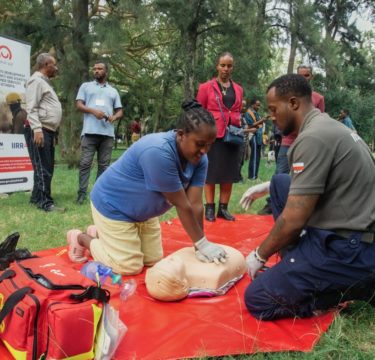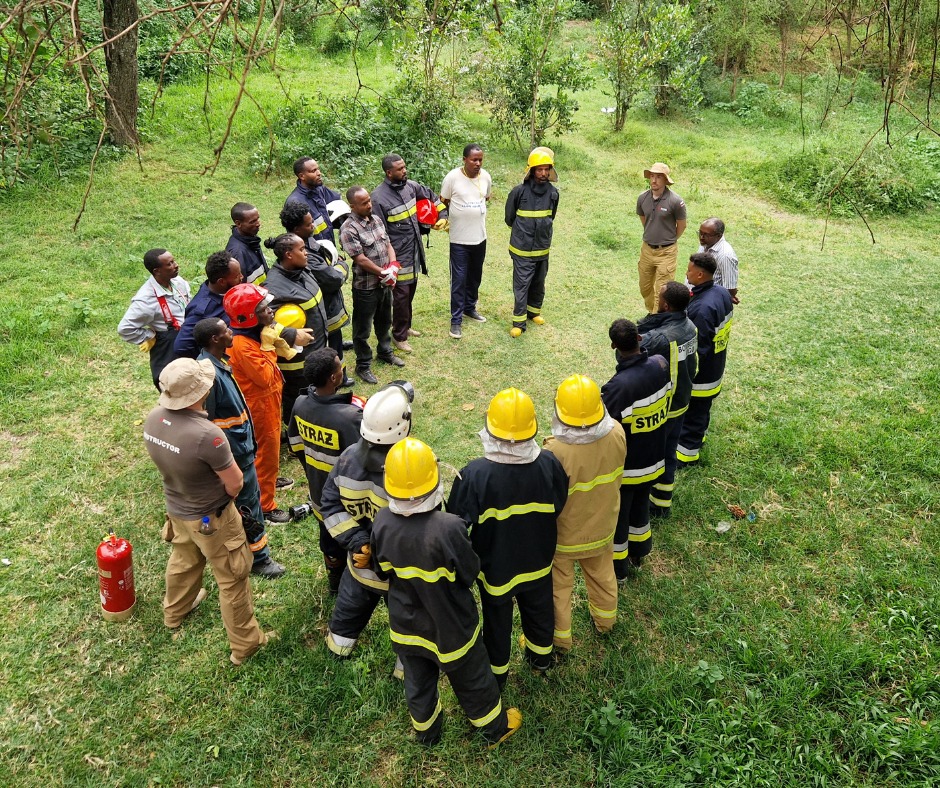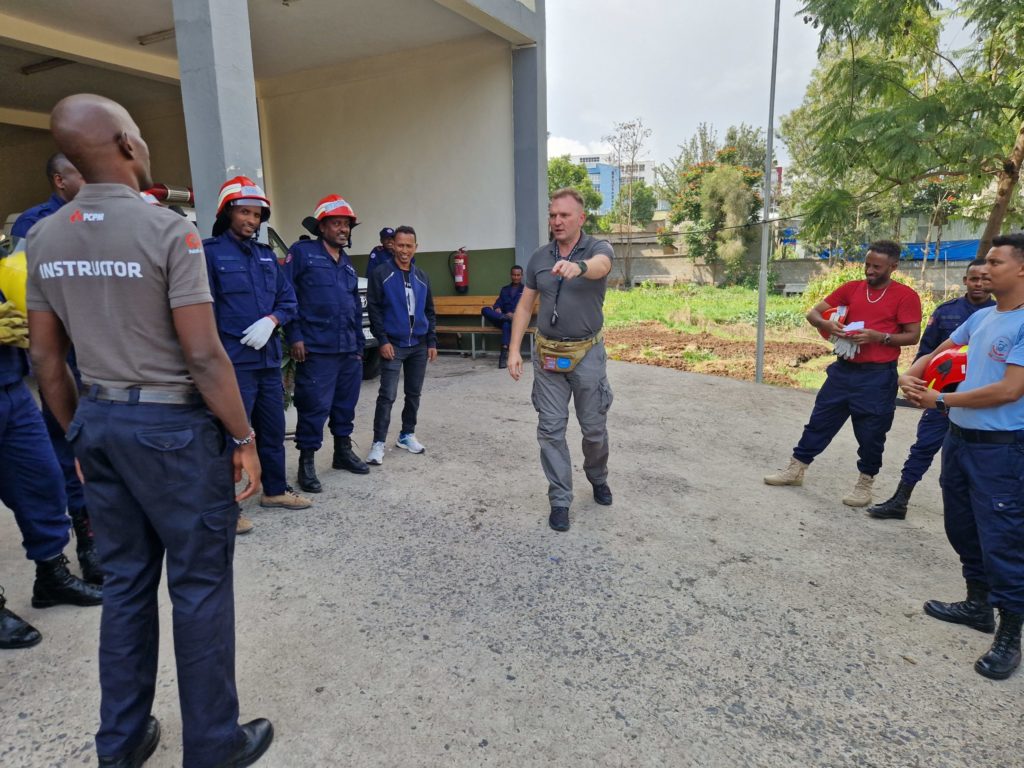Flooding, Fires, Natural Disasters. Firefighters Trained by PCPM to the Rescue


In Addis Ababa, the capital of Ethiopia, a tragic event occurred in 2024 – during intense rainfall in the Gofa region, numerous landslides claimed the lives of at least 229 people, including many who were trying to rescue others. This dramatic event underscores the significant challenges faced by emergency services and the fire brigade in Ethiopia, where inadequate infrastructure and resources hinder their ability to respond effectively to such disasters.
Statistics on Fires and Accidents in Ethiopia
Fires represent a serious problem in Addis Ababa and across the country. Between 2013 and 2019, the damage caused by fires increased significantly, with huge consequences for safety, lives, and the economy. The main causes include negligence, electrical faults, poor infrastructure, and natural factors. Fires often cause injuries, deaths, and serious psychological and social effects. In Addis Ababa, there is a lack of suitable roads and infrastructure for rapid fire response.
Regarding road accidents, Ethiopia ranks among the countries with the highest rates of accidents and fatalities worldwide. In 2013, WHO estimated around 25.3 deaths per 100,000 inhabitants annually due to road accidents. These accidents are the second most common cause of injuries and death after falls, with young people and vulnerable road users such as pedestrians and motorcyclists being particularly at risk.
Why PCPM Helps in Ethiopia and Its Achievements
The Polish Center for International Aid (PCPM) has for years supported the development of emergency services in Africa, including Ethiopia. Addis Ababa officially has over 3.7 million residents, and this number continues to grow, creating huge challenges for safety and rescue services. Only about 1,200 firefighters operate in the capital, whereas for comparison, Warsaw—with a population half as big—has about 1,800 firefighters. The biggest problem is a lack of proper training and practical experience, despite the fact that equipment is improving, partly thanks to donations from the foundation.

Recently, PCPM conducted a 5-day advanced training course in Addis Ababa for 18 local fire brigade trainers who refreshed their skills and were prepared to act as instructor assistants. Two of them have already assisted a Polish instructor during a basic training session in Auasa — the first time local trainers have co-led trainings alongside Polish instructors in PCPM’s Ethiopian operations. This is an important step towards building a sustainable training system and exchanging experiences across the country.
“It is extremely important that we can cooperate with local trainers and build their competencies. This makes the trainings more effective and tailored to Ethiopia’s realities. We see great engagement and willingness to learn from our partners, which gives hope for lasting changes in the rescue system,” says Janusz Majtyka, a Polish fire brigade instructor involved in trainings in Ethiopia.

At the same time, PCPM successfully carried out pre-hospital care training for ambulance drivers in Addis Ababa, resulting in 100% of the fire brigade’s ambulance drivers being trained. Trainings for medical personnel in emergency care, including obstetrics, are also ongoing.
PCPM also provides modern equipment such as thermal imaging cameras, which are new to Ethiopia and greatly assist in locating fire sources and victims in smoke-filled environments. The foundation supports the development of training infrastructure, facilitates experience exchange with Kenya — where PCPM has operated for over a decade — and is creating local Urban Search and Rescue (USAR) teams to search for victims trapped under rubble.
The Work Is Not Over
Ethiopia faces serious challenges in fire safety and emergency medical services that have real consequences for the lives of its citizens, as demonstrated by the tragic landslides. Thanks to its experience and support, PCPM helps develop local rescue services by training firefighters and paramedics and supplying modern equipment. As a result, the quality and effectiveness of rescue operations improve, which could save many lives in the future.
The Project – called „Support for the development of rescue services and crisis response services in Ethiopia 2024-2026″ – is co-financed by the state budget as part of the Polish development cooperation of the Ministry of Foreign Affairs of the Republic of Poland.
